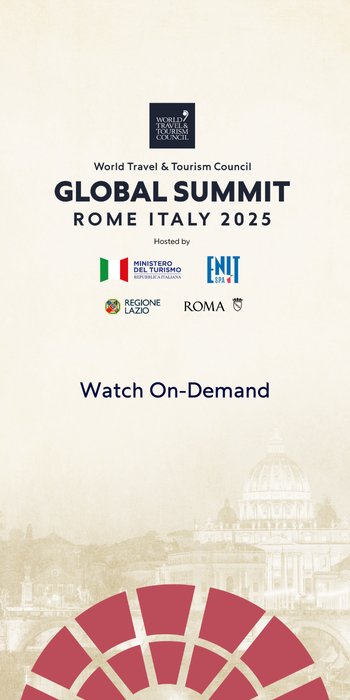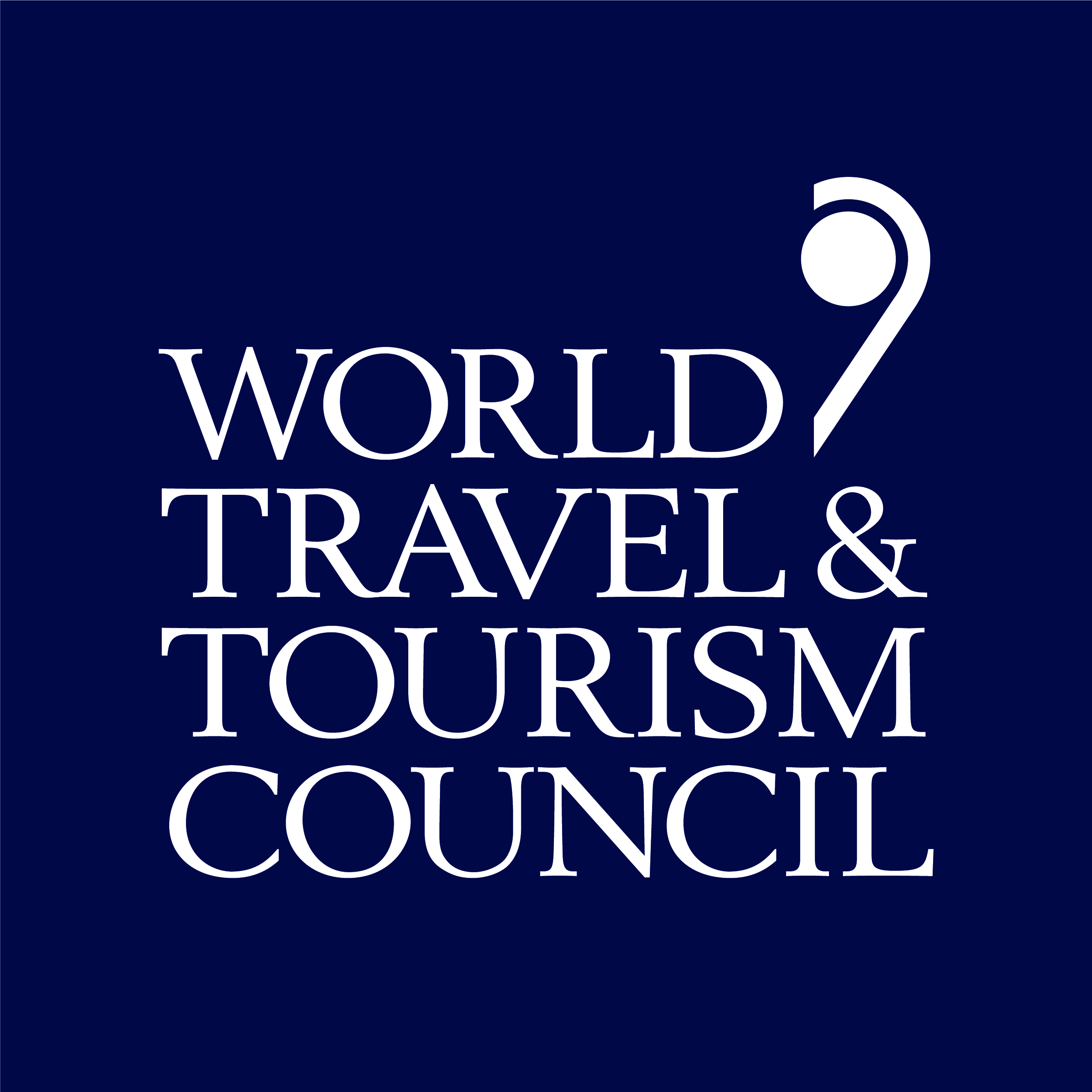Luxury isn’t a price tag, it’s a feeling, says Neen James

In the crowded, fast-scrolling, digitally saturated world of travel, one truth that cuts through the noise is that luxury isn’t about how much something costs; it’s about how it makes you feel. Neen James, a luxury experience expert, executive coach, and strategist for CEOs of some of the world’s most prestigious brands, has spent her career proving that leadership and luxury have more in common than people think. “Both are fundamentally about attention and connection. In travel, every touchpoint is an opportunity to create advocates, not just satisfied clients,” she says. And for James, transforming transactional relationships into transformational ones is the difference between businesses that survive and those that thrive.
Sign in to access actionable insights
In the crowded, fast-scrolling, digitally saturated world of travel, one truth that cuts through the noise is that luxury isn’t about how much something costs; it’s about how it makes you feel. Neen James, a luxury experience expert, executive coach, and strategist for CEOs of some of the world’s most prestigious brands, has spent her career proving that leadership and luxury have more in common than people think. “Both are fundamentally about attention and connection. In travel, every touchpoint is an opportunity to create advocates, not just satisfied clients,” she says. And for James, transforming transactional relationships into transformational ones is the difference between businesses that survive and those that thrive.
Small and medium enterprises (SMEs) in the Travel & Tourism sector may not have sprawling budgets, but they do have a distinct advantage of intimacy. While customers are bombarded with hundreds of messages a day, small businesses can offer personalised, meaningful connections that cut through the noise. James calls this intentional attention the ability to make people feel seen, heard, and valued before they even articulate their needs.
She shares her concept of a ‘champagne moment’, that instant when joy bubbles up unexpectedly, making you pause, smile, and be fully present. It could be as grand as a surprise upgrade or as simple as remembering that a guest loves mint tea in the morning. “Our attention spans aren’t declining. They’re just split. Your job is to give undivided attention so you can earn theirs,” James says.
Redefining luxury
Forget marble lobbies and gold-plated fixtures. James’ research proves that luxury today is about experiences, not things. It’s the fresh flowers at reception instead of a candy or a handwritten note instead of a mass-printed welcome card.
Caroline Huo, an exceptional leader in KW Luxury real estate, approaches client gifting in unexpected ways. One of her clients, a widow moving into an aged care facility, was asked what she would miss most about her luxury home. Her answer was, “My husband’s lemon tree.” Caroline’s response was extraordinary as she grafted a branch from that very tree, allowing her client to take a living piece of her memories to her new home.
Sharing another example, James said, “I once sent a $6 Fly Fishing subscription to a client, and that small, personalised gesture led to a multi-year speaking engagement because he valued the thoughtfulness behind it. True luxury occurs when you not only exceed expectations but elevate them through systematised thoughtfulness and personalisation, rather than price points.”
One of the biggest mindset shifts SMEs can make is to think like a concierge. A concierge anticipates needs you didn’t even know you had; that’s where loyalty is born. “Scale comes from passionate advocates who are worth ten times. They’ll shout about your business from the rooftops or at least their Instagram stories,” James says.
SMEs are innovation’s secret weapon
In James’ eyes, SMEs have the flexibility and agility to personalise at speed, fill the existing gaps, and collaborate creatively with other small players to craft unique, share-worthy experiences. “They can create the champagne moments that become social media gold because they’re authentic,” she says.
Storytelling, James insists, is the bedrock of brand connection. She points to Philippe Hertzberg, founder of Secret Journeys in Paris. He embodies this philosophy flawlessly. A former narrative journalist with The New York Times and International Herald Tribune, he understands the power of storytelling to spark curiosity while preserving a city’s heritage. His guides are not simply tour leaders, they are ‘storytellers’ who work closely with destinations to weave history, culture, and emotion into each journey, bringing every guest’s experience vividly to life.
“Your brand story isn’t about you; it’s about the transformation you create. Focus on stories that show how travellers are changed by their experiences and encourage them to share those stories with you or on social media. Make your guests the hero. The most powerful stories answer one question: How will I be different because I experienced this?” James says.
The most successful partnerships operate on what James calls ‘systems of elevation.’ She praises Virtuoso CEO and Together in Travel Founding Partner Matthew Upchurch for building a network that blends the scale of a global brand with the intimacy of personal advisory relationships. “He positions their ‘luxury travel advisors’ not as mere agents, but as trusted members of a client’s life team. Virtuoso gives SMEs access to an expansive, well-connected network, while advisors maintain highly personal relationships, responding quickly, knowing clients by name, and understanding exactly how they like to travel. The magic lies in both sides knowing their strengths. Virtuoso offers reach and resources, while advisors deliver the personal touch and transformational experiences. Success happens when both partners recognise that luxury is about experience and human connection,” she says.
One of the biggest untapped opportunities for SMEs lies in creative collaboration, especially when they understand the ‘four luxury mindsets’ identified in James’ proprietary research, the only study of its kind in the world. Among these, the ‘Luxury Lovers’ (25% of respondents) are pure gold. They’re natural brand advocates with what she calls ‘big mouths’ as they enthusiastically share exceptional experiences, making them invaluable. Another group worth targeting is the ‘ProPrioritizers,’ who seek luxury that enhances their professional and social status.
Luxury Lovers respond best to exclusive, unique opportunities, behind-the-scenes access, and deeply personalised touches. When impressed, they post about it, recommend it personally, and weave the brand into their professional circles. They’re also the most influential over the other three mindsets, often guiding others toward luxury investments.
“SMEs could unlock enormous value by systematically sharing proven strategies with each other. A behind-the-scenes experience created by one operator might inspire another to develop something equally innovative. The key is to give Luxury Lovers that coveted inside scoop such as early product launches, dedicated account managers, and first access to updates, and then invite them to spread the word through their networks,” James says.
Cultural intelligence is often the line between a transactional client relationship and a truly transformational one. Different cultures express and receive luxury in different ways, and creating a sense of belonging across those boundaries is essential for global appeal. “Andrea Grisdale, CEO of IC Bellagio, exemplifies this perfectly. For her company’s 25th anniversary, she brought together the who’s who of the luxury travel industry in Bellagio, Italy, staging a celebration that was both glamorous and deeply sustainable. Local partners were front and centre, guests were personally thanked for their advocacy over the years, and every detail reflected a commitment to sustainability woven into Italian heritage,” shares James.
This systemised cultural thoughtfulness turned the event into ‘the talk of the season’ or ‘the talk of the Ton’ for the Bridgerton fans. By combining authenticity, transparency, and trust, Andrea transformed cultural connection into a competitive advantage, creating memories that will last a lifetime.
Technology with a human core
In the race toward digital transformation, James says SMEs should start with systematised attention, not automation. The most successful luxury businesses understand that personalisation and customisation are non-negotiable, and small enterprises have a natural advantage in their ability to be flexible and collaborative.
As James outlines in her book ‘Exceptional Experiences’, systemised thoughtfulness means intentionally building processes and routines that ensure mindful, considerate actions are consistent. “Technology can and should support this, but only as a memory aid, not a substitute for genuine connection. Use technology to remember personal details like Mrs. Smith’s preference for room-temperature water but keep delivery human. Technology should amplify your humanity, not replace it,” she says.
The same goes for AI. “Let it handle efficiencies, so your brain has the bandwidth for creativity and emotional connection. Your brain is like luxury real estate. Don’t decorate it with cheap thoughts,” she says.
The future of luxury travel
James predicts a shift toward ‘inclusive luxury’, and experiences that make everyone feel special without exclusion. Her Experience Elevation Model maps the path: Entice through storytelling, invite into exclusivity, excite with sensory moments, delight by anticipating needs, and ignite advocacy.
One story that continues to inspire James comes from Sally Turner of 360 Private Travel, who reshaped the way her teams serve clients by focusing on the thoughtful anticipation of their needs. When a widowed client felt overwhelmed at the prospect of packing for her first solo trip, the advisor went to the client’s home and helped her pack, recognising the emotional weight of the moment. That small act of care forged a powerful connection, turning the client into one of the company’s most passionate advocates. “It’s a vivid reminder that luxury is experience, connection, and care,” James recalls.
So, her advice to SMEs is to rethink what luxury truly means. “Luxury is accessible to everyone, regardless of budget or industry. You don’t need a luxury product to provide a luxury service,” she says.

















